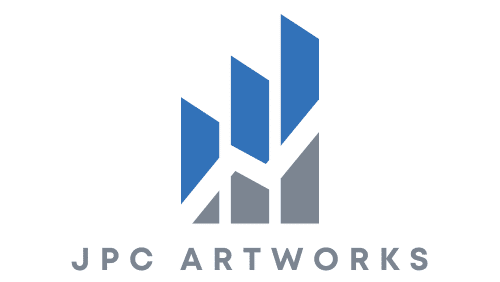What Are the Ethical and Privacy Concerns with AI Monitoring in Workplaces?

Artificial Intelligence (AI) is increasingly being adopted by organizations worldwide as they strive to improve productivity, efficiency, and business operations. The technology is especially being employed in workplace monitoring systems, helping organizations keep track of their employees’ productivity, behavior, and overall performance. However, this development has raised several ethical and privacy concerns that need to be addressed. In this article, we will delve into these potential issues and explore how they can impact the workplace.
Balancing Workplace Monitoring and Employee Privacy
Workplace monitoring has become a contentious issue, especially with the increasing use of AI technologies. Systems and technologies that provide organizations with detailed data about their employees’ work patterns and behaviors can infritably infringe on personal privacy. Employers have to walk a delicate line between utilizing these technologies to improve productivity and ensuring that their employees’ privacy rights are not violated.
Also to discover : How Can Smart Shoes with GPS Tracking Improve Safety for Dementia Patients?
The use of AI in workplace monitoring can range from simple tasks like tracking employee internet usage to more complex applications such as analyzing communication patterns for signs of stress or burnout. While these technologies can provide valuable insights, there is a risk that they could be used to intrude on employees’ privacy.
Such scenarios raise pressing ethical questions: How much monitoring is too much? Where should employers draw the line to ensure that their employees still feel trusted and comfortable in their work environments? The answers to these questions can often be nebulous, making it crucial for organizations to establish clear policies around AI usage in workplace monitoring.
Also read : Can AI-Enabled Virtual Coaches Improve Mental Health and Productivity?
The Ethical Implications of AI Monitoring
AI technologies, while providing valuable data, can also lead to potential ethical issues in the workplace. The application of AI in employee surveillance can lead to practices that are unfair or discriminatory. For instance, AI systems can potentially be biased, leading to discrimination in employee evaluations.
Moreover, the data collected by AI systems can be manipulated to provide misleading insights about an employee’s performance. For instance, an AI system might penalize an employee for reduced productivity during specific hours, without considering the possibility that the employee could be engaged in other important tasks during this time.
This also brings us to another ethical concern – the misuse of AI technology. Employers can potentially misuse AI monitoring to control and manipulate their employees, leading to a hostile work environment. It is, therefore, essential for organizations to establish ethical guidelines for the use of AI in workplace monitoring.
Human Intelligence Vs. Artificial Intelligence
AI systems, no matter how advanced, cannot fully replicate human intelligence. They lack the ability to understand the context in which data is generated and can often misinterpret or misunderstand information. This can lead to inaccurate evaluations of employee performance and unfair treatment.
A workplace is a dynamic environment, with a myriad of factors influencing employee behavior and productivity. While AI can provide quantitative data, it lacks the human ability to understand qualitative factors like employee morale, interpersonal relationships, and motivation levels.
Organizations must, therefore, be aware of these limitations and ensure that human intelligence is not completely replaced by AI. While the data provided by AI can be helpful, it should be used in conjunction with human judgment and understanding.
Addressing Ethical and Privacy Concerns
To maintain a harmonious and respectful workplace environment, organizations need to address the ethical and privacy concerns associated with AI monitoring. Transparent communication is key in this regard. Employees should be informed about the extent and purpose of monitoring, and their consent should be obtained.
In addition, the data collected should be used strictly for the purpose stated and not for any other reasons. Organizations should also have strict data privacy policies in place to protect the personal information of their employees.
Moreover, organizations should establish clear ethical guidelines for AI usage in the workplace. This includes ensuring that AI systems are unbiased and fair, and that they do not lead to discrimination or mistreatment of employees. It’s also important to have a human oversight over AI systems to prevent misuse and misinterpretation of data.
In conclusion, while AI can bring many benefits to workplace monitoring, it is not without its potential pitfalls. Ethical and privacy concerns must be adequately addressed to ensure that the technology is used responsibly and in a manner that respects the rights and dignity of employees.
The Role of Big Data in AI Decision Making
Artificial intelligence systems are empowered by big data. Large amounts of data are collected, processed, and analyzed to improve decision-making and predictions. In the context of workplace monitoring, AI systems gather data on employees’ work patterns, communication habits, and other activities to provide insights into their performance.
However, this extensive data collection has sparked significant privacy concerns. There is apprehension about the amount and type of personal data being collected and the potential for misuse or abuse. This can range from data breaches, where hackers can gain access to sensitive information, to more subtle forms of invasion, such as using personal data for targeted advertising without the employee’s consent.
Moreover, the reliance on big data can also lead to ethical implications. For instance, data can become an instrument of power, where employers can leverage the information to manipulate or control their employees. This could result in workplaces where employees are constantly under pressure to perform, leading to stress and burnout.
Therefore, it is critical for organizations to establish a robust ethical framework around the use of big data in AI decision making. This includes employing secure data protection practices, obtaining informed consent from the employees, ensuring that the data collected is minimal and necessary, and that it is used for its intended purpose only.
Facial Recognition: A Controversial AI Monitoring Tool
Facial recognition is a sophisticated AI technology that has been utilized in workplace monitoring. It can track an employee’s attendance, monitor their interactions, and even analyze their emotional states. However, the use of facial recognition has raised several ethical and privacy concerns.
From a privacy perspective, the use of facial recognition is invasive. It requires the constant surveillance of employees, which can create an uncomfortable and distrusting work environment. Employees might feel that their privacy is being violated, leading to decreased satisfaction and potentially affecting their overall performance.
From an ethical standpoint, the use of facial recognition in the workplace is questionable. It can potentially be used to discriminate against employees based on their appearances or emotional states. For example, an employee who naturally appears tired or stressed might be penalized, despite their actual performance levels.
Furthermore, the technology associated with facial recognition is not foolproof. It can make errors, and these mistakes can have serious implications on employees’ careers and wellbeing. Considering these concerns, organizations need to establish strict privacy protection measures and ethical guidelines when implementing facial recognition technology in their monitoring systems.
Conclusion: Creating a Meaningful Work Environment with Technology
AI brings a new frontier to workplace operations, particularly in employee monitoring. However, its adoption should not overshadow the vital aspects of employee privacy and ethical considerations. Organizations need to create a meaningful work environment where technology is used responsibly and promotes trust, not fear.
Maintaining a balance between the benefits of AI and respecting employees’ privacy rights is crucial. Clear communication about the extent and purpose of monitoring, obtaining employees’ consent, and ensuring data protection will help in building a transparent and respectful workplace.
Ethical concerns associated with AI, such as bias in machine learning systems or misuse of data, need to be tackled proactively. Establishing an ethical framework for AI usage will ensure that the technology is used fairly and does not lead to discrimination or mistreatment of employees.
In conclusion, AI monitoring in workplaces can provide valuable insights and enhance productivity. However, it is also a domain fraught with privacy and ethical challenges. By addressing these concerns thoughtfully and proactively, organizations can harness the power of AI while ensuring a respectful and supportive environment for their employees.
